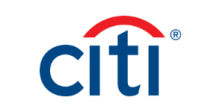- Digitisation, automation and analytics are combining to give companies in the region the ability to manage staff travel much more efficiently
- Many firms accord employees considerable autonomy to book travel, but 40% report a significant increase in corporate travel costs as a result
- The biggest challenge in granting autonomy is ensuring employee safety, say 31% of survey respondents
The digitisation of corporate travel has been a major driver of efficiency in corporate travel management in the region, according to a new study from The Economist Intelligence Unit, Disruption hub: Landing innovation in Asia’s corporate travel industry, sponsored by Citi. The voluminous data generated by digital and automated transactions, and the analytics-driven insights resulting from this, are giving corporate travel managers in the region deeper insights into employee travel behaviour and spending. The report is based on a survey of 210 travel managers and other senior executives in Asia Pacific, as well as in-depth interviews with travel managers and other industry experts.
The value of the data being generated is such that companies prefer to analyse it internally, rather than outsource analysis. Travel managers obtain transaction data from a wide variety of sources today, including their travel management companies (TMCs), but managers often struggle to get consolidated data from any one external partner, say interviewed executives.
Digitisation, while giving employees more options to book travel and pay expenses in different ways, is also enabling companies to make travel policy more specific and to ensure tighter compliance and cost control, the study finds. Similarly, the detailed data now available to companies enhances their ability to ensure employee safety when travelling.
The report also finds considerable innovation in payment practices in the region. E-wallets, mobile payment apps and virtual cards, for example, are coming into wider use. At the same time, T&E is becoming more tightly controlled, thanks partly to the wider use of corporate cards. At over 60% of surveyed firms, the latter is the main method used to procure airlines and hotels and pay in-travel expenses.
Charles Ross, the editor of the report, said: “As in most other realms of business activity, mastery of data and its analysis is also proving a powerful weapon for Asia Pacific corporate travel managers. It is helping them to stay on top of an increasingly complex business travel environment, but leveraging the ever growing volumes of data and generating valuable insights will require more expertise and better tools than are currently available.”
Press enquiries:
Alice Tong, head of marketing, Content Solutions
Charles Ross, editorial director
About The Economist Intelligence Unit
The Economist Intelligence Unit is the world leader in global business intelligence. It is the business-to-business arm of The Economist Group, which publishes The Economist newspaper. The Economist Intelligence Unit helps executives make better decisions by providing timely, reliable and impartial analysis on worldwide market trends and business strategies. More information can be found at www.eiu.com or www.twitter.com/theeiu.
About Citi
Citi, a leading global bank, has approximately 200 million customer accounts and does business in more than 160 countries and jurisdictions. Citi provides consumers, corporations, governments and institutions with a broad range of financial products and services, including consumer banking and credit, corporate and investment banking, securities brokerage, transaction services, and wealth management.
Additional information may be found at www.citigroup.com | Twitter: @Citi | YouTube: www.youtube.com/citi | Blog: http://blog.citigroup.com | Facebook: www.facebook.com/citi | LinkedIn: www.linkedin.com/company/citi




